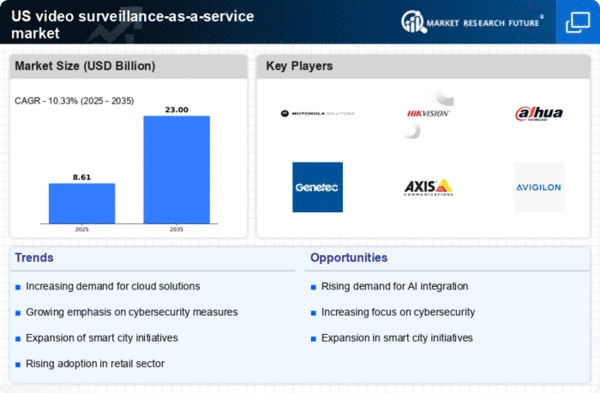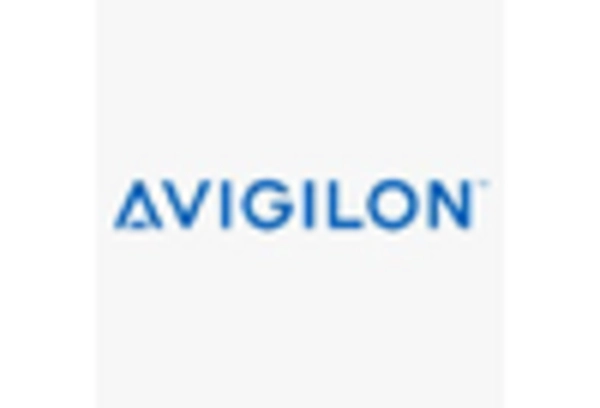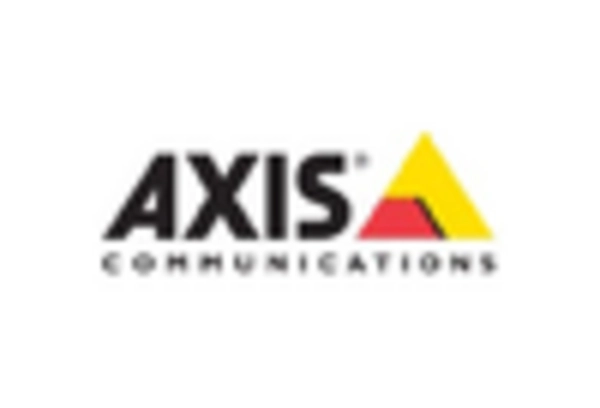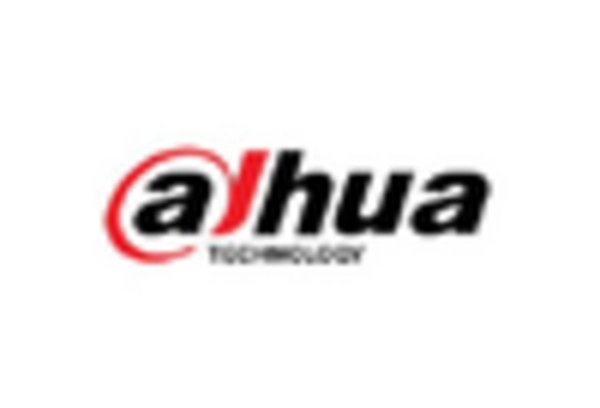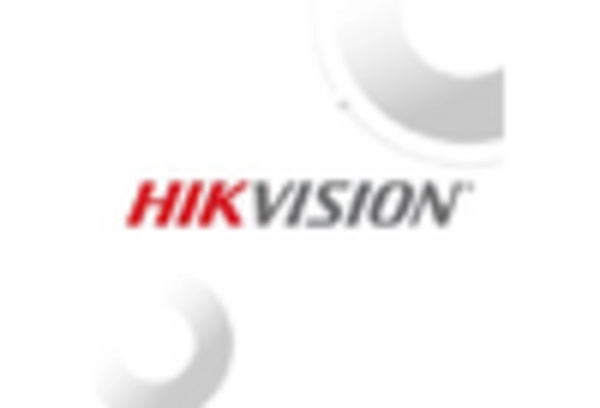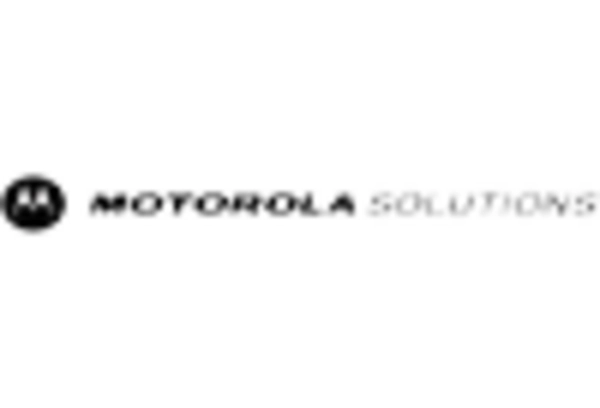Rising Security Concerns
The escalating concerns regarding security threats are propelling the growth of the video surveillance-as-a-service market. With incidents of theft, vandalism, and other criminal activities on the rise, businesses are increasingly prioritizing security measures. As of 2025, it is reported that nearly 70% of organizations in the US are investing in enhanced security solutions to mitigate risks. This heightened awareness of security vulnerabilities is driving the demand for comprehensive surveillance systems that can be easily managed and monitored. Video surveillance-as-a-service offers a flexible and scalable solution that meets these needs, allowing organizations to adapt their security measures in response to evolving threats. The ability to access real-time data and alerts further empowers businesses to take proactive measures against potential security breaches.
Increased Focus on Cost Efficiency
Cost efficiency is emerging as a critical driver for the video surveillance-as-a-service market. Organizations are increasingly recognizing the financial benefits of adopting cloud-based surveillance solutions over traditional systems. By utilizing video surveillance-as-a-service, businesses can avoid hefty upfront investments in hardware and infrastructure, opting instead for a subscription-based model that aligns with their budgetary constraints. As of 2025, it is estimated that companies can save up to 30% on security expenditures by transitioning to these services. This financial flexibility is particularly appealing to small and medium-sized enterprises, which may have limited resources. The ability to scale services according to specific needs further enhances the attractiveness of video surveillance-as-a-service, allowing organizations to optimize their security investments while maintaining high levels of protection.
Regulatory Compliance and Standards
The video surveillance-as-a-service market is also being shaped by the increasing emphasis on regulatory compliance and industry standards. Organizations are required to adhere to various regulations concerning data protection and privacy, which influences their choice of surveillance solutions. As of 2025, it is estimated that compliance-related investments in security technologies will account for approximately 25% of total security budgets for many businesses. This trend is prompting organizations to seek video surveillance-as-a-service solutions that not only meet their security needs but also align with regulatory requirements. The ability to ensure data security and privacy through cloud-based services is becoming a key consideration for many companies. Consequently, the video surveillance-as-a-service market is likely to see growth as businesses prioritize compliance alongside effective security measures.
Growing Demand for Remote Monitoring
The video surveillance-as-a-service market is experiencing a notable surge in demand for remote monitoring solutions. This trend is largely driven by the increasing need for businesses and organizations to oversee their premises from various locations. As of 2025, it is estimated that around 60% of companies in the US are adopting remote monitoring systems to enhance security and operational efficiency. This shift not only allows for real-time surveillance but also reduces the need for on-site personnel, thereby cutting operational costs. The convenience of accessing surveillance feeds via mobile devices or computers is appealing to many users, further propelling the growth of the video surveillance-as-a-service market. Additionally, the rise in remote work culture has contributed to this demand, as organizations seek to ensure safety and security in a more flexible working environment.
Advancements in Video Analytics Technology
Technological advancements in video analytics are significantly influencing the video surveillance-as-a-service market. The integration of sophisticated analytics tools enables users to derive actionable insights from surveillance footage, enhancing security measures. For instance, features such as facial recognition, motion detection, and behavior analysis are becoming increasingly prevalent. As of 2025, it is projected that the market for video analytics will grow at a CAGR of approximately 20%, indicating a robust interest in these technologies. This growth is likely to attract more businesses to adopt video surveillance-as-a-service solutions, as they seek to leverage these advanced capabilities for improved security and operational efficiency. The ability to analyze vast amounts of video data in real-time is transforming how organizations approach security, making video surveillance-as-a-service an attractive option.


